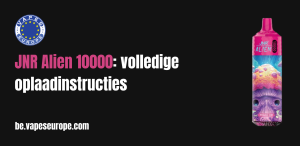The polymer recycling industry in India is poised for significant growth and transformation, driven by increasing environmental awareness, regulatory developments, and technological advancements. As global concerns over plastic waste escalate, the focus on recycling and sustainability presents new opportunities for the Indian polymer sector. This article explores the emerging trends and opportunities shaping the future of polymer recycling in India.
Rising Demand for Sustainable Solutions
With growing awareness about plastic pollution and its environmental impact, there is a rising demand for sustainable solutions in India and globally. Polymer recycling plays a crucial role in reducing landfill waste, conserving resources, and minimizing carbon emissions associated with virgin plastic production. As consumers, businesses, and governments prioritize sustainability, the demand for recycled polymers is expected to surge across various industries.
Technological Innovations in Recycling Processes
Technological advancements are driving innovations in polymer recycling processes, enhancing efficiency, and expanding the types of plastics that can be recycled. Advanced recycling technologies such as chemical recycling and pyrolysis are capable of converting complex plastic waste into high-quality feedstock for new polymers and other materials. Indian companies are investing in these technologies to improve recycling rates and produce recyclates with properties comparable to virgin materials.
Government Initiatives and Policy Support
Government initiatives and policies play a crucial role in shaping the recycling landscape in India. The Plastic Waste Management Rules, 2016, mandated extended producer responsibility (EPR) and promoted recycling infrastructure development. Recently, initiatives such as the Swachh Bharat Mission and the Single-Use Plastic Ban have further emphasized the importance of sustainable waste management practices. Policy support for recycling infrastructure development, incentives for recycling projects, and awareness campaigns are creating a conducive environment for growth in the polymer recycling sector.
Circular Economy Opportunities
The concept of a circular economy is gaining traction, emphasizing the importance of resource efficiency and waste reduction. In a circular economy framework, polymer recycling contributes to closing the loop by reintroducing recycled materials into the production cycle. Indian businesses are exploring opportunities to integrate circular economy principles into their operations, fostering collaboration across the value chain—from collection and sorting to processing and manufacturing of recycled products.
Market Expansion and Export Potential
The growing demand for recycled polymers presents opportunities for market expansion and export potential. Recycled polymers, including PET, HDPE, LDPE, and PP, find applications in packaging, textiles, automotive components, construction materials, and more. Indian recycling companies are leveraging export opportunities by supplying high-quality recycled materials to global markets, contributing to sustainable supply chains and enhancing India’s position in the global recycling industry.
Challenges and Future Outlook
Despite the opportunities, the polymer recycling industry in India faces challenges such as inadequate collection infrastructure, lack of standardized recycling processes, and low awareness among consumers and businesses. Overcoming these challenges requires investments in infrastructure, technology adoption, capacity building, and collaborative efforts among stakeholders.
In conclusion, the polymer recycling industry in India is poised for growth, driven by increasing environmental awareness, technological innovations, and supportive government policies. By capitalizing on emerging opportunities and addressing challenges proactively, India can strengthen its position as a leader in sustainable polymer recycling, contributing to environmental conservation and economic development in the years ahead.






